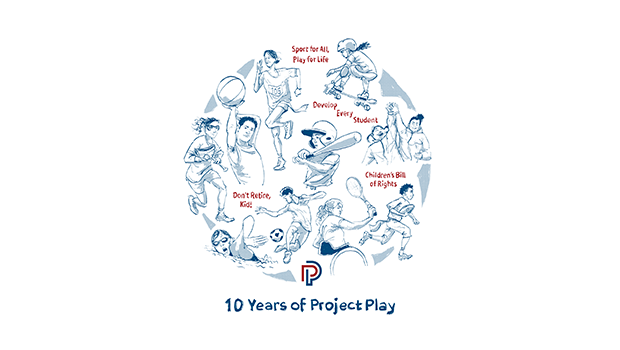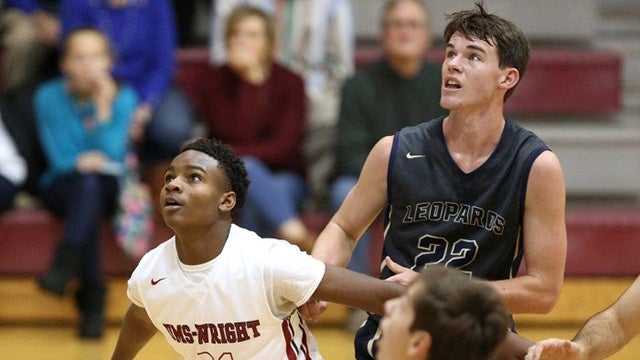Every pro athlete knows pressure; it’s a part of the game. But for many athletes, the game also includes fear and anxiety—and it’s not only the pros who are suffering.
Jeremy Lin knows those feelings as well as anyone. As a standout, stereotype-defying basketball player, he’s faced racism, toxic sports culture, and expectations both high and low. After a strong high school career, he was ignored by college recruiters, and after an incredible college career he was passed over by the pros. When given a chance by the New York Knicks in 2012, he launched a run—dubbed “Linsanity” by fans and the press—that made him a household name.
All that time he was dealing with anxiety. Today, he works with a sports psychologist and speaks out about sports and mental health. He recently sat down with Sports & Society’s editorial director Jon Solomon as part of the 2021 Project Play Summit.
For as long as Lin had played competitive sports, he’d wrestled with fear, and it came in many varieties. “Maybe at certain points, it would be fear of failure, or fear of a bad game, or fear of being embarrassed,” he said. “Or maybe it’s fear of not living up to the expectations of somebody else, or of a coach, or a team, or my school and my classmates. Maybe it’s fear of injury; it could be fear of letting down your parents, it could be fear of your coach or the way that he’s looking at you.”
As a pro, Lin became unable to eat or sleep before games, and had to have hours-long conversations with his agent to calm himself before taking the court. His parents traveled with him to road games to look after him, and he surrounded himself with friends who he could lean on for trust and support. Even at the height of Linsanity, the anxiety didn’t let up. “I was anxious because I wanted to be who everybody else wanted me to be—a mega star who came onto the scene and just broke all these records.”
Athletes, Lin said, have been enculturated into the “man-up” mentality, where fear is considered a weakness. But that bravery is more hype than reality. “I don’t know if I know of a single athlete who doesn’t struggle with fear.” Lin said. He cautioned the audience against just trusting what they see in recaps and highlights. “You don’t see their mistakes and their struggles and everything up until that point—all of the normal mundane aspects of their game—you only see the best, coolest part.”
During the conversation, Lin also addressed the racism he faced as an Asian basketball player, and talks about how anti-Asian sentiment is holding back young athletes today.
“I never walked onto the court and thought, ‘I’m just like one of these guys,’” Lin said. “It was always, ‘that’s the Asian basketball player.’” That experience taught him resilience and perseverance—and how to tune out the noise of his opponents—but it also gave him a chip on his shoulder.
“Before I knew it, I couldn’t trust anybody, and thought everybody was out to get me,” he said. “I felt like I had to go and earn everybody’s respect, like it was just me against the world.” As he has started to talk through these feelings with his psychologist, he’s learned to stop playing out of a place of bitterness and hatred, he says.
The best way, Lin realizes now, is “to play out of a love for the game. Love for people, love for your team, a love for the sport. Love will always be the most powerful driving force behind why you do anything, including sports.”
You can watch the full conversation here. Visit aspenprojectplay.org for the full program and more.


